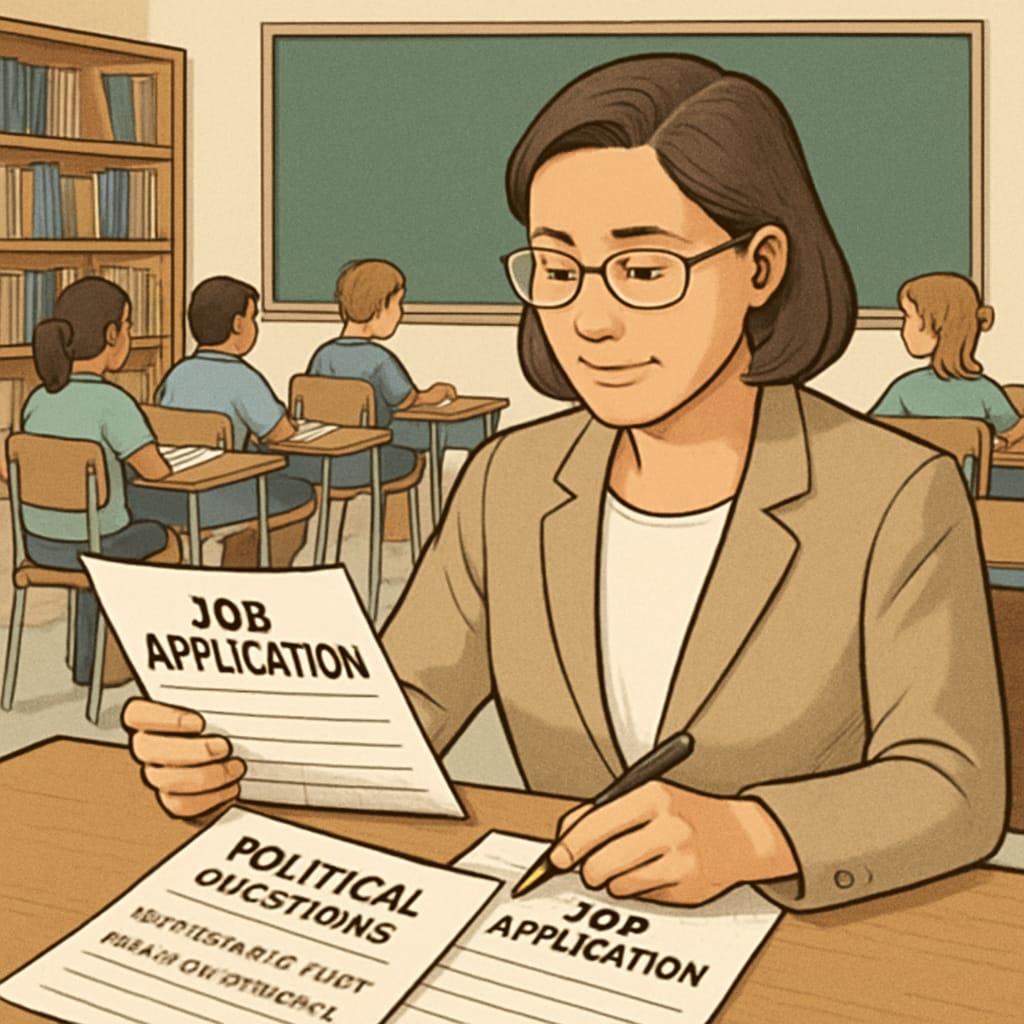The introduction of political inclination tests for out-of-state teacher applicants in Oklahoma has sparked heated debate across the education sector. This controversial policy raises questions about the role of political ideology in hiring practices and challenges the principle of neutrality in education. As educators and policymakers grapple with its implications, concerns regarding ideological screening take center stage.
The Policy: A Brief Overview
Oklahoma’s decision to implement political inclination tests for teachers from outside the state stems from the growing national discourse around political and cultural ideologies in education. The policy requires applicants to disclose their political beliefs, ostensibly to ensure alignment with the state’s educational values and curriculum. However, critics argue that such measures blur the line between professional qualifications and personal convictions.

Implications for Education Neutrality
One of the most contentious aspects of this policy is its potential impact on the neutrality of education. Traditionally, schools have been seen as places where diverse perspectives are introduced and debated. However, enforcing ideological screening risks transforming schools into echo chambers that reflect only a singular viewpoint. As a result, students may miss out on the opportunity to engage with a broad spectrum of ideas.
- Reduction in diversity: Teachers from varied political backgrounds may feel excluded or discouraged from applying.
- Conflict with free speech: Mandating disclosure of political beliefs could infringe upon constitutional rights.
- Impact on teacher recruitment: States with such policies may struggle to attract qualified educators.

Balancing Education and Politics
Supporters of the policy argue that it ensures teachers align with state values, particularly in contentious areas like history, social studies, and literature. However, this justification raises broader questions: Should education serve the state’s ideology, or should it remain a platform for critical thinking and debate? The challenge lies in balancing these competing priorities without compromising educational integrity.
For example, states like Oklahoma may justify political screening as a safeguard against “biased teaching.” However, critics emphasize the risk of overreach, where personal opinions become grounds for exclusion, regardless of professional expertise. This tension underscores the need for dialogue about the boundaries of political influence in education.
Looking Ahead
As Oklahoma navigates this controversial terrain, other states may observe its outcomes closely. Will ideological screening become a national trend, or will backlash from educators and advocacy groups force a reconsideration? The broader implications for teacher autonomy, student learning, and educational diversity remain uncertain.
Ultimately, policymakers must weigh the benefits of ideological alignment against the risks of marginalizing dissenting voices. Education, at its best, thrives when both teachers and students are free to explore diverse perspectives. Striking this balance will be key to the future of inclusive and unbiased learning environments.
Readability guidance: This article uses short paragraphs and lists to improve readability. Active voice is prioritized to maintain clarity, while transitions (e.g., “however,” “for example,” “as a result”) ensure smooth progression between ideas.


